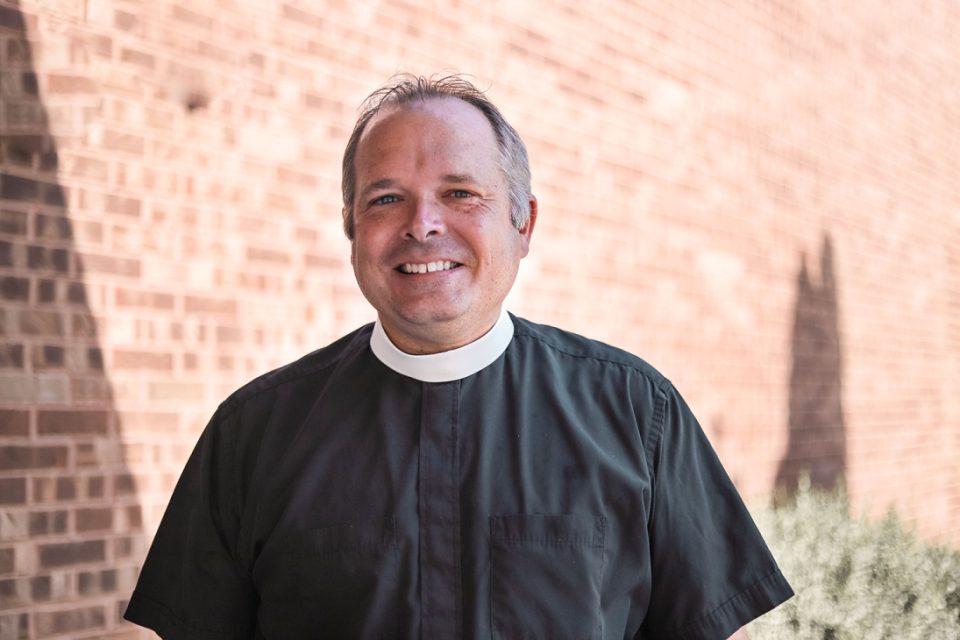If there’s such a thing as a classic Lutheran upbringing, it must resemble Greg Busboom’s childhood in Flatville, Ill. Busboom’s great-great-grandfather arrived in Flatville from Germany in 1874 and, with his wife and children, was an early member of the town’s first Lutheran church. By the time Greg was 12, he was serving as organist at Immanuel Lutheran Church (“the Cathedral in the Cornfield”), erected in 1914 to replace the one his ancestors had attended.
Busboom, who will take office Sept. 1 as bishop of the Central/Southern Illinois Synod, is proud of his upbringing but well aware that the church needs to move beyond its own past. “I have a very deep and solid foundation for my faith, which is definitely great and developed out of that context,” he explained. “I have a strong Lutheran identity because of growing up in that community. However, I have been challenged, over the course of my ministry, to see that the Lutheran church and the church in general is much more diverse and much broader than the community in which I was brought up.”
Since earning his Master of Divinity degree from Trinity Lutheran Seminary in Columbus, Ohio, Busboom has served close to home: in 1999 he was called as pastor of Trinity Lutheran Church in Carthage, Ill., and eight years later he moved to St. John Lutheran Church in Springfield, Ill., first as pastor of outreach and discipleship and then as lead pastor. The contrast between Trinity, a congregation he estimates at 350 members, and St. John, which has about 2,000, was striking.
At St. John, Busboom supervises a staff of more than a dozen people and a wealth of programs and activities. “More important than size of the congregation,” he said, “is the health of the congregation and the health of the relationships and the health of the ministry structure. St. John’s has a very healthy structure and a very healthy culture. While there certainly have been moments of conflict and disagreement, I think because the church is so centered on its mission, those moments of conflict have not derailed the congregation from what is most important.”
Asked about the challenges faced by the synod, Busboom cited “congregational leadership in dealing with the shortage of pastors but also working with congregations, many of which are no longer able to afford a full-time, called pastor on their own.” The problem, he asserted, demands “thinking creatively about leadership and how to provide both pastoral but also lay leadership in congregations that are in a very different place than where they once were.” Intersecting with this issue, he said, was the imperative of keeping churches focused on their mission, the same thing that unifies St. John despite its various tensions.
“I think it’s important to recognize that ministry is definitely done in partnership with others and in relationship with others,” Busboom observed, “and that ministry is stronger, whether it’s a congregation or a synod, when folks are working together in alignment with the mission rather than when one person is trying to lead all by themselves.”
Busboom will be installed as bishop on Sept. 23 at St. Agnes Church in Springfield, Ill.





